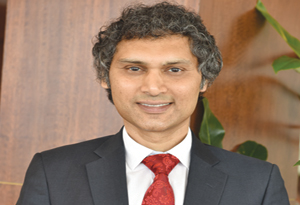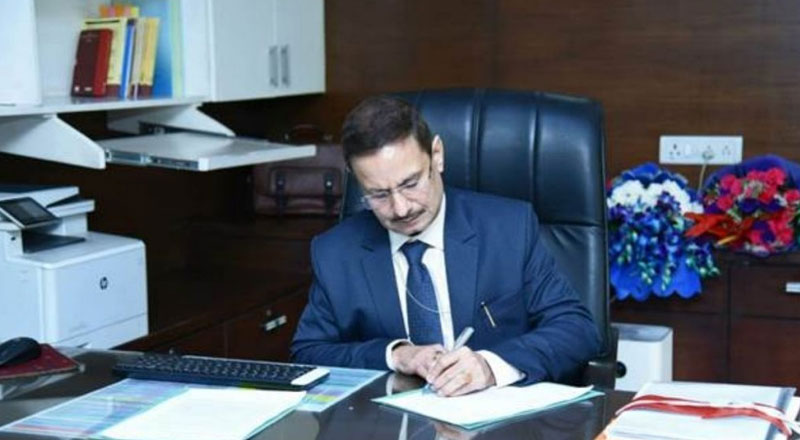Shekhar Ramamurthy – Managing Director, United Breweries Limited in a chat with SPOI shares the sustainability agenda of the company and about the company policy that believes in taking an active responsibility in empowering local communities and safeguarding the environment –
According to you, what are the top priorities in your organisation for taking initiatives through CSR for the inclusive growth of your organisation?
We believe that a company’s ability to operate efficiently depends heavily on the circumstances of the locations, where it manufactures. We operate from a large number of locations all across the country that is characterized by non-uniformity in level of awareness, socio-economic development, education, poverty, practices and rituals. While India is a very large country with multitude of social issues and concerns, UBL has decided to focus on the communities residing in the vicinity of its breweries as a starting point for its CSR interventions.
Sustainability is a business imperative for us and therefore, not optional. We have always adhered to sustainable practices in our everyday operations and helped our associates too to conduct their businesses in a sustainable manner. Through our values-based practices, we seek to sustain and enhance the long-term competitive advantage of the Company and work towards achieving our social, environmental and economic goals.
How have you designed the CSR programs in your organisation?
United Breweries firmly believes in sustainable development, which is interpreted as growing our business in a socially and environmentally responsible way, while meeting the legitimate interests of our stakeholders. We also believe in taking an active role and responsibility in empowering local communities to achieve their ambitions. The company and its employees are committed to the community it works with and the environment it extracts its resources from. The needs of the community and the environment keep changing over time and therefore our CSR and Sustainability policy is dynamic to be able to include the aspects which would help in paving the way for long term sustainable development. We ensure that our CSR initiatives that integrate social and environmental considerations apply to all our operations is incorporated in our governance, management, business strategy and day to day decisions and actions.
We invest in holistic welfare measures for our co-communities that includes water, primary education, primary health and environmental sustainability. All our initiatives are implemented after a thorough needs assessment, which is done in consultation with the community.
Education is a key driver for ending poverty and boosting shared prosperity. Is there any mandate to support in the education sector in the society?
While each of our manufacturing units has adopted a neighbouring government school and works with it on a regular basis to fulfil varied requirements, we also have large interventions on education in Rajasthan and Karnataka. The education initiatives, particularly the larger ones in Rajasthan and Karnataka are aimed at long term impact at not just students and teachers but the overall education system in government schools. Improvement of infrastructure and teachers training in 10 schools of Rajasthan in the first year of implementation itself has shown better enrolment rates, less absenteeism, both amongst teachers and students and improvement in teacher attitudes. The science center initiative in 7 schools of Karnataka, true to its objective, has been able to kindle interest towards scientific experiments among young children, who were struggling to deal with science through text book education. 11000 children have benefitted from our education interventions.
As you leverage strategic partnerships for implementing the projects how do you identify the credible partners?
Non-profit organisations operating in the region/state where the company decides to undertake CSR interventions are identified through internet research and references. The identified NGOs are then visited for verification of the on-ground implementation of the programmes along with the review of relevant documents of the organisation. The previous funding partners of the concerned non-profit are also consulted to understand the capacities and competence of the organisation as an implementation partner. Once the partner has been identified, the needs-assessment is carried out.
What is the potential for companies to collaborate and achieve the CSR objective?
Since most manufacturing units are located in common industrial areas, they map common geographical areas for CSR implementation. Due to poor/no consultation amongst corporates interested in similar geographical areas, the implementation of programmes could be hap-hazard and there could be possibilities of duplication. Interestingly, sometimes there is also a sense of competition amongst the corporates when they are trying to reach out with projects with similar goals. Our country’s social development needs are huge and it would be unfortunate if the limited resources available with the corporates cannot be utilised optimally. The corporates need to be willing and open to collaborate on CSR to have a much larger impact.
Could you share some of the recent initiatives of how it is shaping the path for CSR within the company?
As a result of increased communication and emphasis on the importance of giving back to the community, the engagements with local community has increased manifold. Important days like the World Environment Day, World Water Day, World Earth Day are not just celebrated within the brewery premises but outside with the community and with the community being an equal and important participant. The management trainees who we regard as the future of this company and those who would pave the path for further growth and success undergo a month long induction to understand the CSR initiatives of the company. Through the stint, they are sensitised about the real world problems and those that the communities living so close to our own premises face on a day to day basis. The emphasis is on building a community of professionals, an organisation of individuals who see pride in being factors of development of their fellow underprivileged citizens. The induction involves not just living the experience but also brainstorming about how this process of development can be improved.
Can you elaborate on your flagship initiatives? What were the challenges that you face and how did you overcome them?
The Safe Drinking water programme is extremely large and challenging with respect to the geographical area and population size intended to be covered. We have covered 35 villages under this programme so far around six of our manufacturing units in four states namely Karnataka, Telengana, Maharashtra and Haryana. We have made safe drinking water available to 65000 individuals through the initiative and 35000 more would be reached out in the next 3-4 months. Most families in these communities were directly consuming raw water from the available sources, without processing for drinking purposes and were prone to many water-borne diseases. This programme has provided safe drinking water to them, which will have a very long term impact on their health and wellness. The plan is to extend the programme to a pan- India level going state by state. In the next 3-4 years, 140 villages across India would be covered by this programme, which would benefit 600,000- 10, 00,000 people.
Initially, like most community development interventions, our project was also received with a lot of scepticism at the community end, because there is an inherent distrust between business and community. Both tend to believe that to fulfil one’s interests, others’ would have to be compromised. Our community organisation skills and regular communication helped us overcome this challenge. And now since communities have seen our commitment, they are extremely supportive of us. This has contributed to a new and improved perception of businesses in general. Since our manufacturing units are in industrial areas, the communities insist on inviting representatives from other companies in the vicinity to showcase UBL’s CSR.
Best Practices for CSR at United Breweries
• Partnership with reputed regional non-profit partners- UBL believes that a regional partner understands local issues much better, has better community organization strength, therefore leading to better community connect. The right partnerships have been critical to successful implementation of its CSR programmes.
• Robust implementation process- UBL’s implementation model starts with identification of an ideal NGO partner, which undertakes needs assessment survey in the villages it intends to work in. It tries to gauge the needs of the villages through participatory rural appraisal exercises like social mapping, focus group discussions, meeting with village leaders, transect walks through the villages etc. This is followed by the preparation of project proposal and budget. Then the implementation is initiated and very closely monitored to ensure achievement of project objectives.
• Flexibility in implementation model- The key strength of UBL’s programme is that it has been extremely flexible with its implementation model, which is completely dependent on the needs-assessment findings. The attempt is to understand specific needs of a particular village and address it to the extent possible.
• Replicability- UBL thinks of replicability of the project at the stage of project planning. It has 21 manufacturing units spread across the country and its vision is to make a difference in the lives of each of its co-communities. Once UBL is able to implement a project at one location successfully, it is easily replicable with required modification based on the next locations’ need.
• Sustainable by design- UBL believes in planning the sustainability of the project at the design stage. Neither the company nor the NGO can continue to work with the community forever. The community and local government involvement ensures the sustenance of the project. UBL always takes a public-private community partnership approach in its interventions.





